
Mihály
Historical movie on the life of András Hadik

Man
A writer in self-exile is haunted by the memory of his long-lost love. Mysterious events and an unexpected visitor are about to offer him a chance to relieve his pain. Based on the famous poem of Edgar Allan Poe: The Raven.

Abel Nagy works as a sommelier in the restaurant. He recommends and pairs wine with the food ordered. This time guests put him to the test.
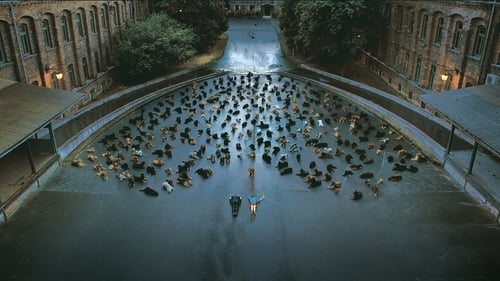
Homeless man
“하겐, 여기 있어..! 꼭 데리러 올게” 순종이 아닌 잡종견에게는 무거운 세금을 부과하는 헝가리의 정책으로 인해 하루아침에 집에서 쫓겨나게 된 개 ‘하겐’과 그를 찾아 헤매며 방황하는 13살 소녀 ‘릴리’. 인간의 손에 이용당하고 학대당하던 ‘하겐’은 생존을 위해 인간을 적대시 하게 되고 결국 유기견들의 우두머리가 되어 인간들에게 역습을 가한다. 도시 전체를 점령한 개떼들과 그를 통솔하는 ‘하겐’은 마침내 ‘릴리’와 다시 마주하게 되는데...

Himself
A documentary about the making of The Turin Horse, the last film directed by Hungarian master Béla Tarr.

János
Andor Czettl, in his early sixties, visits the secret service archives one day to read into the reports about himself and discovers a shocking fact. His very best friend János Pásztor was an informer, spying on him and writing reports about him for decades. Sára Cserhalmi's first feature focuses not so much on the actual problem of informing and betrayal as on the contradictory relationship of the two protagonists. It avoids any final judgments. First and foremost, it seeks answers to questions like how an informer can live in our present times and how the one being reported on can cope with this state. Can a close friendship that began decades ago last if such betrayal comes to light? How can someone live and cope with this fact?

Ohlsdorfer
1889년 1월 3일 토리노. 니체는 마부의 채찍질에도 꿈쩍 않는 말에게 달려가 목에 팔을 감으며 흐느낀다. 그 후 니체는 ‘어머니 저는 바보였어요’라는 마지막 말을 웅얼거리고, 10년간 식물인간에 가까운 삶을 살다가 세상을 떠난다. 한편 어느 시골 마을, 마부와 그의 딸 그리고 늙은 말이 함께 살고 있다. 밖에서는 거센 폭풍이 불어오고 매일매일 되풀이되는 단조로운 일상 속에 아주 조금씩 작은 변화가 생겨나기 시작하는데…

Father
Love makes a bad relationship between father and son all the more rancorous in this drama from Hungarian director Viktor Oszkar Nagy. A convict (Janos Derzsi) returns home after a long stretch in prison to a less than enthusiastic welcome; his son (Tamas Ravasz), now in his late teens, was left to fend for himself and tend the family farm on his own after his dad went away, and the youngster blames his father for his mother's untimely death. The father wants to mend his relationship with his son, but the young man makes no secret of his contempt for his dad, and only grudgingly allows him back on the farm.

Karcsi, a Roma policeman, lives with Eva, a Swede. One day he is called to the scene of the murder of a wealthy trafficker named Schulter. He begins to investigate the crime, interrogate neighbours and suspects, and untangle a complex situation - one that he, himself, complicates even further. For he is a gypsy, who despite being adopted and raised by "regular" Hungarians, has his nose rubbed in his minority status every day. The film, which is based on the novel by Ákos Kertész, is a shrewd genre work full of dusky humour and surreal situations. Tabló follows a vivid succession of strange images that eventually lead to the emergence of the central story about a charismatic police officer on a tireless quest for the truth, though he must fight against virtually everyone and is just as fallible as the next person. Tabló makes a statement on the issue of race and racism - or, indeed, relations between any minority and majority.

Vidra
Gabriel Ventuza lives the peaceful life of a herbalist, growing and cultivating medical herbs in Italy. One day he receives an order from his older brother who is just out of prison for one day. Gabriel should go to the remote little town of Bogdanski Dolina in Far-Eastern Europe, the place of their childhood and take out the mortal remains of their father, the late people smuggler, the famous Victor Ventuza. Gabriel leaves his "eventless" life behind and goes to accomplish his mission. He is robbed on the way, his belongings, passport, money and even his clothes are stolen and finds himself in a small closed town surrounded by hills of stinking toxic waste, where strange priests rule and fear keeps people quiet, producing a general atmosphere of insecurity.

A story of a Jewish-Hungarian-Serbian family. The plot is centered about trying of an adult son to reconstruct his childhood dream of and memories. Looms, but a sunken world, the central European town with its figures, the way to experiencing deep and see a sensitive boy, his father, who by their fears that penetrate to the bone and the final humiliation of acting madness escapes and becomes a lonely, pathetic buffoon in the drama of life.
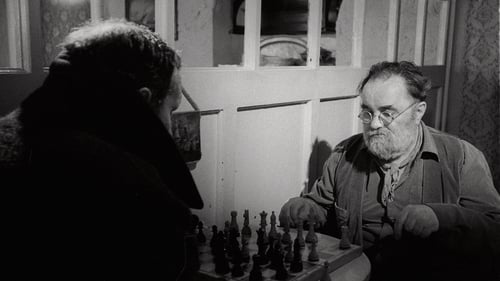
Brown
조르주 심농의 소설을 원작으로 한 벨라 타르의 최신작으로 살인 현장을 목격한 이후 인생이 바뀐 한 남자의 이야기를 담고 있다. 장르적으로 느와르에 속할뿐만 아니라 제작 과정에서 프로듀서가 자살하는 등 우여곡절을 겪었던 영화. 빛보다 어둠이 두드러지는 배경 위에 한 톤 한 톤 높아져 가는 말다툼과 곧바로 이어지는 불편한 정적에 분절되지 않은 롱테이크가 결합되어 장르적 긴장감을 더해준다.
(제9회 전주국제영화제) 영화는 어떤 언어로도 설명될 수 없는 독특한 시각적 경험이다. 이 사실을 굳게 믿는다면, 벨라 타르의 영화를 절대 놓쳐서는안 된다. 는 이후 7년 만에 완성한 ‘영화몽상가’ 벨라 타르의 신작이다. 모두 28개의 쇼트로만 구성된 이 영화는 배에서 기차로 이동하는 인파를 보여주는 오프닝 항구 신에만 13분짜리 롱 테이크를 활용할 정도로 특유의 영상미학을 구축한다. 그렇다고 그의 영화가 단순히 카메라워킹을 자랑하는 것은 아니다. 이것은 순수한 경험의 영화다. 관객은 영화 속 캐릭터들과 함께 시간의 경과와 침묵을 피부로 느낀다. 중반까지 어느 한 장면조차 쉽게 파악할 수 없지만, 바로 그런 불확정성이 스크린을 긴장감으로 가득 채운다. 안개 속을 거닐듯이, 한 인물의 부조리함을 뒤쫓으면서 인식의 지도가 그려진다. 범죄소설의 대가 조르주 심농의 동명소설을 영화화한 는 바닷가 기차역에서 야간 근무하는 가난한 전철원 마로인이 거액이 담긴 가방을 슬쩍 가로채면서 사건이 발생한다. 결국 마로인은 돈을 욕심 낸 대가로, 우발적으로 살인의 덫에 빠져든다. 고딕 스타일의 암울함이나 느와르의 냉혹한 법칙이 흐르는 이 세계는 오손웰즈의 이나 캐롤 리드의 를 떠올리게 만든다. 심농이 기존의 범죄소설에 볼 수 없던 독특한 심리묘사를 이끌어낸 것처럼, 타르 역시 인간의 어두운 내면을 투박하게 날것 그대로 포착해낸다. (전종혁)

Juli apja
Some of the most symbolic moments of the 1956 Revolution in Hungary were the tooth-and-nail battles fought by the so-called 'Pest Lads' who dared to defy odds by taking on the panzers of one of the world's superpowers. The story begins on October 23rd, 1956 and ends on November 4th of the same year. Juli is Totya's girlfriend but also loves Gábor. Their love triangle will have to endure the trials and tribulations of these stirring times. A group of boys living in the outskirts of the capital are playing football in abandoned lot when Juli, a ticket inspector, brings news of protests breaking out in the city. Only Gábor accompanies her into town and together they become part of this historical event. At dawn, when the boys too come under fire from Soviet forces, they decide to join in the fight.
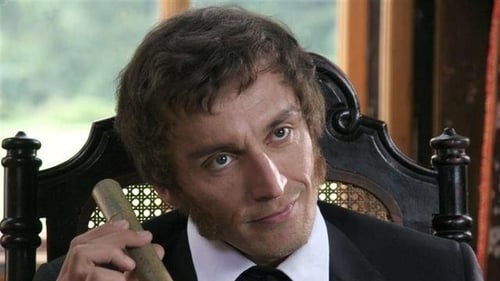
Count Falussy
1839. The discontented noblemen assemble at the country estate of count Gábor Falussy, on the pretext of a boar hunt. Also an English engineer arrives for the sake of constructing the railway line leading up to the count’s quarry.

Sándor Tüdő
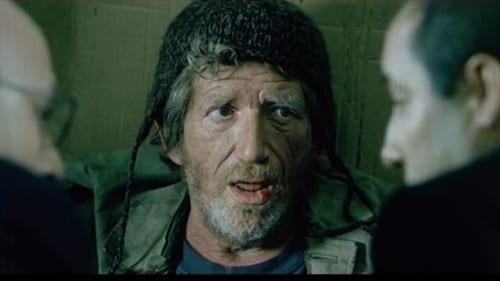
Hozsó
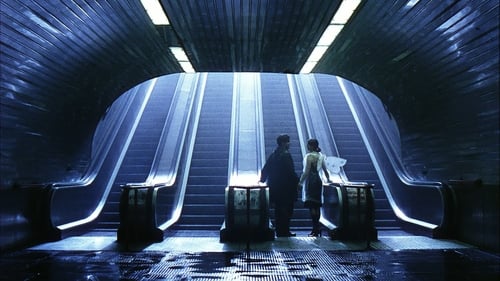
20대의 벌추는 직장인 지하철에서 겪는 문제들로 골머리를 앓는다. 가지각색의 에피소드 중에는 스스로 승객해방연대의 일원이라고 주장하고 다니는 로드러너와 항상 테디 베어 옷을 입고 다니지만 벌추의 마음을 단번에 빼앗아버린 소피가 등장한다. 그러나 이들 사이에 어두운 그림자가 끼어들기 시작하고, 그들을 기다리는 것은 선과 악의 마지막 대결이다. 부다페스트의 언저리에서의 삶을 빠른 속도로 유머러스하게 보여주는 이 작품은 카메라 앵글 속에 현실에서 도망치려고만 하는 부적응자들에 대한 은유를 숨겨놓는다.

Taxisofőr
Iván is living in exile from Hungary when he receives word that an old flame is ill. His return to Budapest rekindles old memories and reopens old wounds.

This epic story takes place between 1820 and 1860 during the Habsburg Monarchy, and portrays the life one of the greatest Hungarian aristocrats - Count Széchenyi - who was born with extra-ordinary mental and spiritual talents. In the years following the fall of Napoleon the young count Széchenyi irresponsibly seduces his brother's wife, and the consequent scandal ruins his career as an army officer. After the sudden death of his humiliated lover Count Széchenyi drastically changes his character from that of a shallow young man into a responsible nobleman seeking to conquer his fate by creating great achievements in his remaining life.

1942. Owing to a stolen mink coat, Süti, the young poet and journalist, gets acquainted with Katalin, the idolated singer. Before being drafted to labour service, he shows the actress the song he composed for her, entitled Smouldering Cigarette.
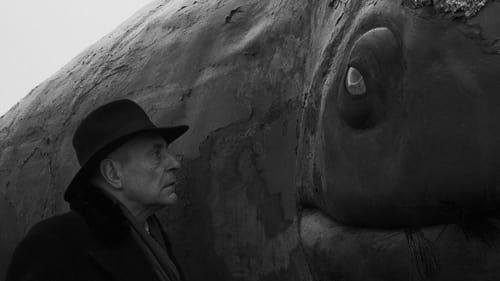
Man In The Broad-Cloth Coat
헝가리 평원의 한 작은 마을에서 일어나는 이야기. 온통 서리로 둘러싸여 있는 이 마을에는 눈이 내리지 않지만 날씨는 살을 에는 듯 춥다. 이렇게 당혹스러운 추위에도 수백명의 사람들이 박제된 고래를 보기 위해 서커스 천막 주위에 서 있다. 외지인들의 출현과 혹독한 서리 등으로 평화로운 마을의 질서는 깨지는데...
145분이라는 긴 러닝타임에도 불구하고 단 39개의 숏으로 구성된 영화는 긴 호흡 속에서 독특한 긴장감을 유지한다. 10분 20초에 달하는 오프닝. 춤추는 듯이 좌우로 움직이는 카메라, 타이트한 클로즈업. 스테디 캠으로 촬영된 롱테이크, 여러 문 사이틀 드나드는 자유로운 카메라 워크 등이 돋보인다. <사탄탱고>의 작가인 라즐로 크라스나호르카이가 시나리오를, 벨라타르의 아내인 아녜스 흐라니츠키가 편집을 맡았다. 제2회 전주국제영화제 상영작.

The tumultuous history of Hungary through the twentieth century is viewed through the saga of the Hungarian-Jewish, furniture-manufacturing family, the Vendels. After taking over the once successful, but now failing, family business in the 1930s, the family patriarch's dashing elder son decides that the family needs an infusion of new blood. A matchmaker presents him with a photo of a pretty German nursery school teacher. When the two meet, they instantly fall in love, but because Hungary has an alliance with Germany, and the Third Reich prohibits marriage between Gentiles and Jews, the couple must hide their union. Their marriage ultimately stands as a dark foreshadowing of rougher times to come as troubles ensue with the advent of World War II, when the family, its employees and servants must retreat to the basement, where the shop emerges increasingly as a refuge in a world growing more violent and less tolerant.

A férfi
György Fehèr’s aim was to “make a film which is similar to the last salvaged print of a long lost film”. The passions he investigates are centred on primeval fears and cravings and a sense of inescapable doom. Shot in powerful black and white with excellent central performances.

The story of a quirky love affair between Angi, an independent, no-nonsense social worker from a working-class district of Budapest and, Ildikó, a young mother who recently separated from her husband.
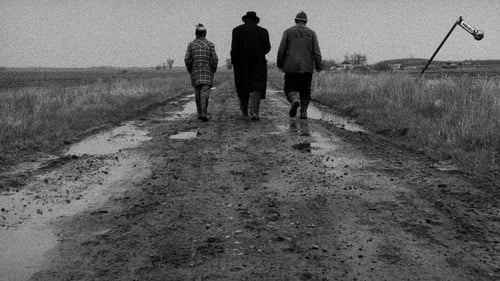
Kráner
헝가리의 대평원을 배경으로 한 이야기. 어딜 보나 지평선뿐인 이곳에서 주민들은 띄엄띄엄 멀리 떨어져 살아간다. 기계문명의 혜택을 받지 못하고 살아온 이들은 이 마을을 벗어나고 싶다는 강한 욕망에 사로잡혀 있다. 이를 위해 그들은 다른 이들을 상대로 한 도둑질과 속임수의 환상 속에서 살아간다. 그러나 자신감이 부족한 그들은 이 초라한 해결책에도 동요하게 되고 결국 계획을 실행에 옮기지 못하고 만다. 사실 그들이 기다리는 것은 자신들을 이끌고 구원해줄 메시아, 지난 과오를 사면해 줄 구세주인 것이다.

Pál Utrius is twenty three years old and in love with his sister.

Hungary after the changes. Jutka loses her job and even her marriage is ruined, since her husband gets involved with the daughter of an influential businessman. Jutka moves in with a female friend, Dóra likewise has to face a difficult choice.

Imre Horváth and his friends gather to celebrate his wife's birthday. They are confused because of the changes in the country's politics and want Horváth to be much more active politically, but he is more concerned about his affair with his best friend's daughter.

From the film-shooting in the Buda Castle Marci and his friend go to a well-paying job. The scene is a big castle in the middle of a huge park. They enjoy the company of the Kid and the beautiful naked French girl, Nathalie. Their job is to watch the monitors on which they can see the Moscow coup détat. By the time Gorbachev is executed the Communist and the Nationalists have taken turns in occupying the castle and the park.

K.
In this grim story, three murders of young girls are committed in a similar manner, and their bodies are all found in the woods. The only suspect, a young man assumed to be a paedophile, commits suicide during the investigation. A policeman becomes obsessed with solving the mystery of this serial killer and he continues to investigate even after he has been taken off the case.

Attila
Margó and Ildi are good friends. Margó lives with her simple, conservative parents, her fiancé is a roadie, her lover has been in prison for two years. Ildi was a pupil of a reformatory school, she buried an Araba husband already and her Rumanian partner is living in Paris. She lives together with a Yugoslavian man in a rented flat. Both are models at the Scholl for Fine Arts, attend an evening school and earn their money by selling their bodies. The lover of Margó, Attila is suddenly released. Margó and Ildi want to get rid of him, but Attila does not let them do that...

menekülő ember
Eckermann (Laszlo Kistamas) is a listless computer whiz who spends most of his time lounging in a bathtub holding imaginary conversations with cartoon characters usually more popular with children than grownups. He has some friends who want to use his skills to steal some money from a local gambling joint. He works out a scheme for his friends and returns to his tub. At some point along the way, he is joined in the water by a lovely Czech refugee, who (perhaps inadvertently) makes it possible for him to die there.

Arne
19세기 동유럽의 작은 항구 마을. 9살 소녀 ‘라우린’은 아빠(아르네), 엄마(플로라), 할머니(올가) 와 함께 숲 속 오두막집에서 살고 있다.
선원인 아빠는 한번 집을 나서면 길게는 반년 동안 배를 탄다
아빠가 배를 타던 날, 엄마는 아빠를 배웅하고 돌아오던 길에 살인 사건을 목격한 후 그만 다리에서 떨어져 익사하고 만다
사고가 있은지 2년 후 할머니 올가는 아들이 바다로 떠나면 늙고 몸 불편한 내가 어린 라우린을 돌봐야 한다며 불안해한다
이제 배는 그만 타라는 할머니의 당부를 아빠는 무시하고 다시 떠나간다 라우린은 할머니와 단둘이 남게 되었다
아빠의 부재와 엄마의 죽음으로 라우린은 혼란스런 사춘기를 보내고 있다
한편 마을 목사 아들인 ‘반 리스’가 2년 만에 고향에 돌아와 초등학교 교사로 부임하게 된다
어려운 형편인 자신을 도와줘서일까? 라우린은 새로 부임한 선생님에게 호감을 느낀다
그러던 어느 날 라우린의 친구 스테판이 실종되면서 2년 전에 있었던 소년 실종사건의 악몽이 되살아난다

1629, Transylvania: Reigning prince Bethlen Gábor has Don Diego, the Spanish chronicle knight be brought to his court in order to make him record his life and deeds for posterity.
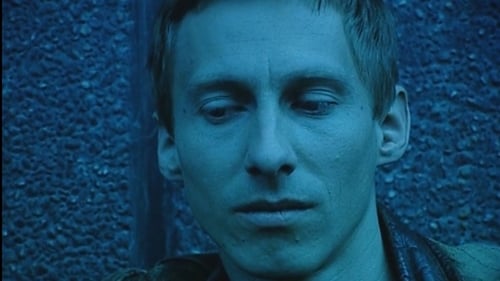
The sad tale of a proletarian malcontent ensconced in a monstrously depressing housing project who—even less effectually than the heroes of Bald-Dog Rock—attempts to change his life. Purchasing a power drill and slinging it across his shoulder like the anti-hero of a spaghetti western, he turns entrepreneur, boring holes in his neighbors’ walls so that they can hang mirrors or pictures.

The unskilled, jack-of-all-trades András and his wife, Éva are put in jail for serial work-place thefts, -committed in order to try to ensure a normal living standard for his family - and for aggravated assault committed for self-defence, respectively. Their two small children are put in state care, then given to foster parents. András, still in prison, commits everything to help the released Éva get hold of an apartment and get their children back so that when he will have served his term the family could be together again.

Factory manager
Blind luck ties the fate of two people together.

János, Hédi fia
In this dense setting, the inhabitants of a large, claustrophobic apartment reveal their darkest secrets, fears, obsessions and hostilities.

Lieutenant Radovics
When hunting, Zrínyi Miklós finds an Angel with a broken wing. He takes him for a heavenly message and carries him to his castle for cure. Lords and priests come to Zrínyi's court, one after the other, to see Angel. The occasion is appropriate for the ban to win them over to his plan: they should unite their forces to fight for the country's independence.

A katonatiszt
A priest arrives in a village and give advice and comfort to different people. He meets a wheelchair-bound former representative of the Communist party, a woman who is dying of tuberculosis and an astronomer who sings in a punk band.

A Hungarian TV version of the play shot in just two takes.

The general practitioner Balla and his wife abandoning her higher education begin their common life in the small mountain village in the hope of quick enrichment and return to the capital. Despite Éva and Emma, the two school mistresses longing for love and Demeter, the dove-keeper obsessed with a desire for flight life is boring in the country.
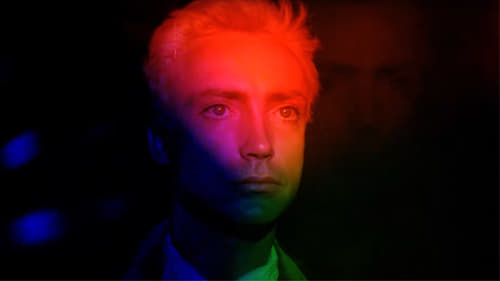
Narcisus and Psyche is based on a novel by Sandor Weores which was adapted by Vilmos Csaplar and director Gabor Body for a feature-length film. Borrowing the character of Psyche from mythology and placing her in Europe in the 19th century, the authors give her a "modern" life. She is an attractive young woman - and remains so throughout the film, in spite of one hardship after another. Psyche is libidinous, and her prurient interests shock her staid contemporaries.

Gábor, Irén férje
Irén and Attila, a not-so-young couple, are in love. All they want is a flat of their own where they could live together. Unfortunately, Hungary in the 70s is no place for dreams.

Gelencsér Jóska
The second in command of a group of highwaymen, the only ones left of Hungary's freedom fighters in the late 17th century, has a wife who really, really wants him to come home and stop gallivanting around the countryside. The only way he can figure to do this is to inform on the group to the authorities in as harmless a manner as possible. Unfortunately, these betrayals cause the group to lose many men, and the traitor grows fearful of the authorities. He gives officials every scrap of information he has in return for a full pardon, and he returns home. His wife, when she hears of these events, is infuriated. Such betrayal is far in excess of anything she can condone, and she kills him. ~ Clarke Fountain, Rovi

Valentin
Set against the backdrop of a small traveling circus, a European clown and his 5-year-old daughter lead each other through the everyday mysteries of love, magic and loss. Based on the long poem “The Clown” by Anthony Lucero.






































